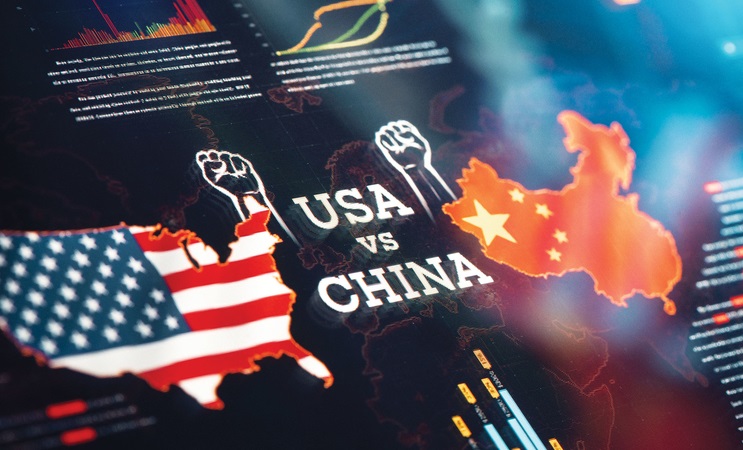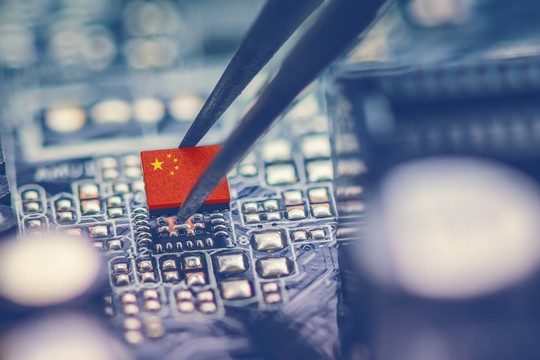Predictions of China's imminent collapse are as misguided now as they were 20 years ago – China is determined to lead the Fourth industrial revolution.
China's debt-to-GDP ratio is 3:1, a bit higher than America's 2.5:1 ratio, but much lower than 4:1 in Japan. The Chinese sovereign borrows 10-year money at 2.6 percent, compared to 4.1 percent for the U.S. China's local governments carry RMB about $5 trillion in debt, but they have almost $30 trillion in assets behind it, David Goldman, a deputy editor of Asia Times and a Washington fellow of the Claremont Institute, writes at Newsweek.
According to the World Bank, China's real per capita GDP rose from $404 in 1979 — the year Deng Xiaoping opened the economy to private enterprise — to $11,560 in 2022 in constant 2015 U.S. dollars. It jumped five-fold since 2001. By contrast, India's real per capita GDP rose from $373 in 1979 to just $2,085 in 2022. By comparison, you can see what a success story China has been, one unique in economic activity.
China is building a new digital economy powered by AI and high-speed broadband, with 2.3 million of the world's 3 million 5G base stations and download speeds double ours. It has automated ports that can empty a container ship in 45 minutes rather than the 48 hours required at our port of Long Beach. It's also automated mines where no worker goes underground, factories controlled by AI, and warehouses in which robots do the sorting and packaging.
Most of all, nearly two-thirds of Chinese citizens have an education beyond high school, compared to just 3 percent who had one in 1979. China graduates more engineers than the rest of the world combined, and Chinese universities teach at world standards.
China has also extended its economic reach to developing economies. It now exports more to the Global South than to developed markets, doubling its exports to ASEAN and tripling its exports to Central Asia after 2020. It builds broadband, railroads, and ports from Africa to South America, promoting a permanent market for its exports.
China overtook Japan as the world's largest auto exporter this year, thanks in part to Tesla's mega-plant in Shanghai. China now makes the 21st century equivalent of the Model T in the form of EVs with a $10,000 price tag.
In 1994, just before the "Asian tigers" took off, Nobel Laureate Paul Krugman derided "the myth of Asia's miracle," claiming that the "tigers" had exhausted their reserves of cheap labor. He missed the jump in productivity to come, just as "peak China" pundits do today.
The Chinese telecom giant Huawei claims to have 6,000 contracts to build enterprise 5G networks to support factory AI applications.
Huawei offers a Cloud-based AI system to enable firms to create their own applications. China is now the world's largest market for industrial robots. If what we have already seen in the EV sector propagates through the rest of the economy, China will gain an insurmountable lead in industry. U.S. tech controls don't have much impact. Industrial applications of AI run well enough on the older chips that China makes at home, David Goldman expresses with a sense of confusion and even fear for American future.

A recently released report by the US-based company Strider Technologies accused the People’s Republic of China (PRC) of infiltrating Western technology firms and institutions as part of “a machine that facilitates the transfer of European technology and talent to the PRC,” Sputnik notes. Reverse brain drain! 30,000 hi-tech experts in Europe have returned to China where more opportunities and incentives welcome them.
The report notes that over the past 20 years, more than 30,000 senior employees at European technology companies have moved to China, in some cases starting up their own firms to compete with their Western counterparts.
Strider CEO Greg Levesque told US media that China “sees leadership in the semiconductor sector as vital to its military and commercial goals and nothing will deter it from pursuing those efforts. Legal and trade barriers in the US will only push them to ramp up operations elsewhere.”
Jeff J. Brown, author of The China Trilogy, editor at China Rising Radio Sinoland, co-founder and curator of the Bioweapon Truth Commission, told Sputnik: “Before the 1980s, most research grant money in the West came from government sources – agencies and foundations – so there were fewer commercial and ideological strings attached. With Reagan/Thatcher neoliberalism starting in the 1980s, those grants dried up, thus big corporations filled the breach offering funding, but now with, ‘We are paying you and these are the results we want.’”
Brown said that a “venal, toxic and revolting work environment” arose in the years since as a result, adding that “is it any wonder Western professors, researchers and scientists are flocking to China, where science is still pure science, the search for truth lives large, and the sociopolitical ambiance is collegial and relaxed?”
“China pays very well, it is a safe, clean and modern country, with no garbage and transport strikes, no riots; inflation is low and the sky’s the limit in terms of basic and applied research, with plenty of a-political, non-commercial grant money,” he noted. “Beijing has already won the race. China Tech is unstoppable. It does not need Westerners in their universities and laboratories to achieve ‘Made in China 2025’, but they are nice leavening in the invention and innovation cake.”
Thomas W. Pauken II, the author of “US vs China: From Trade War to Reciprocal Deal,” a consultant on Asia-Pacific affairs and a geopolitical commentator, told Sputnik that while the migration of high-tech specialists to China could have a big impact on the global tech race, there are still significant obstacles to the kind of exchange that Strider claimed was imminent, especially in the field of proprietary information.
“If it succeeds, it’s going to be amazing for China because they will have a lot more progress and developments in their technologies. And this also could improve trade ties between Europe and China, which right at this very moment is going through some hard times, because the Europeans are too closely aligned with Washington. However, maybe if a lot of Europeans are coming here, this may encourage and inspire Europe to find ways of having deeper cooperation with China.”
read more in our Telegram-channel https://t.me/The_International_Affairs

 11:10 23.08.2023 •
11:10 23.08.2023 •























